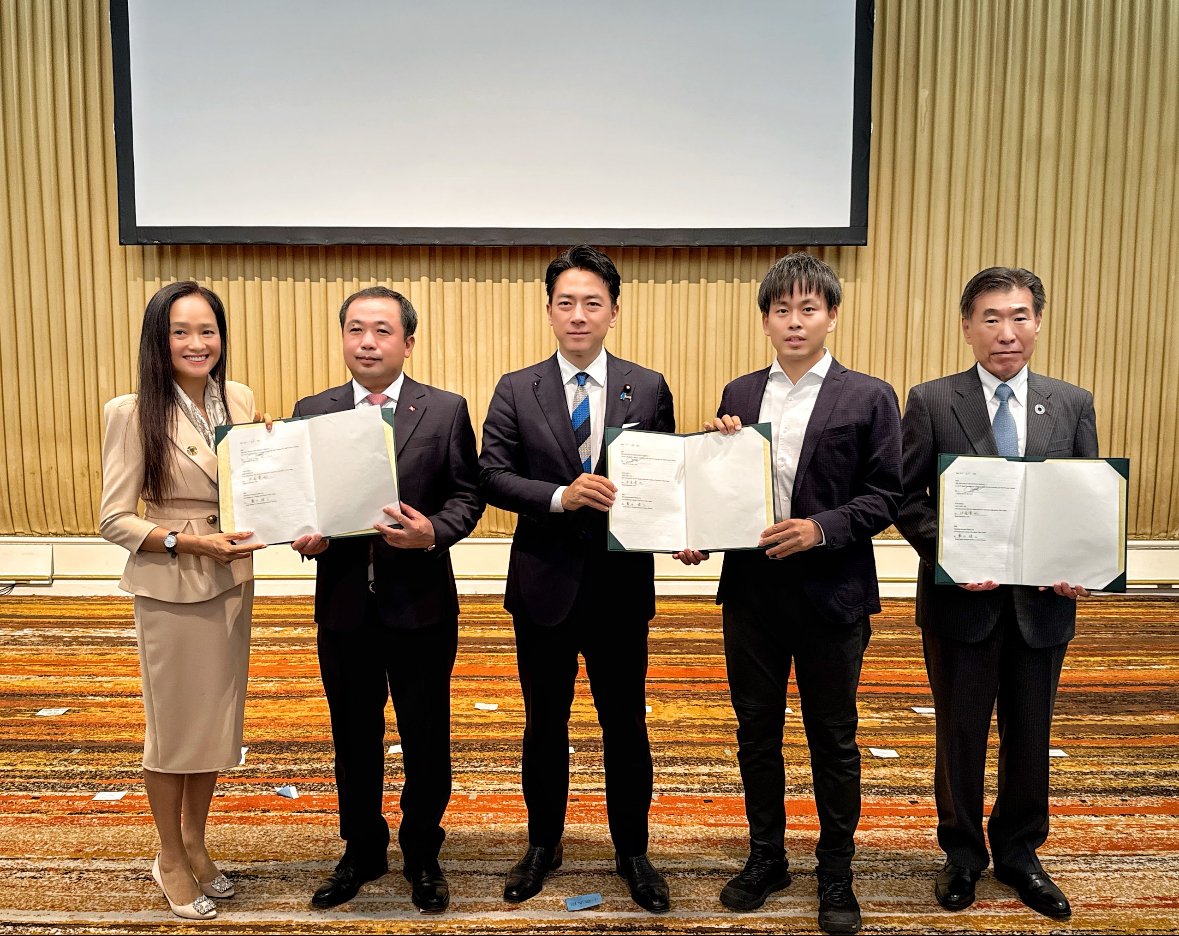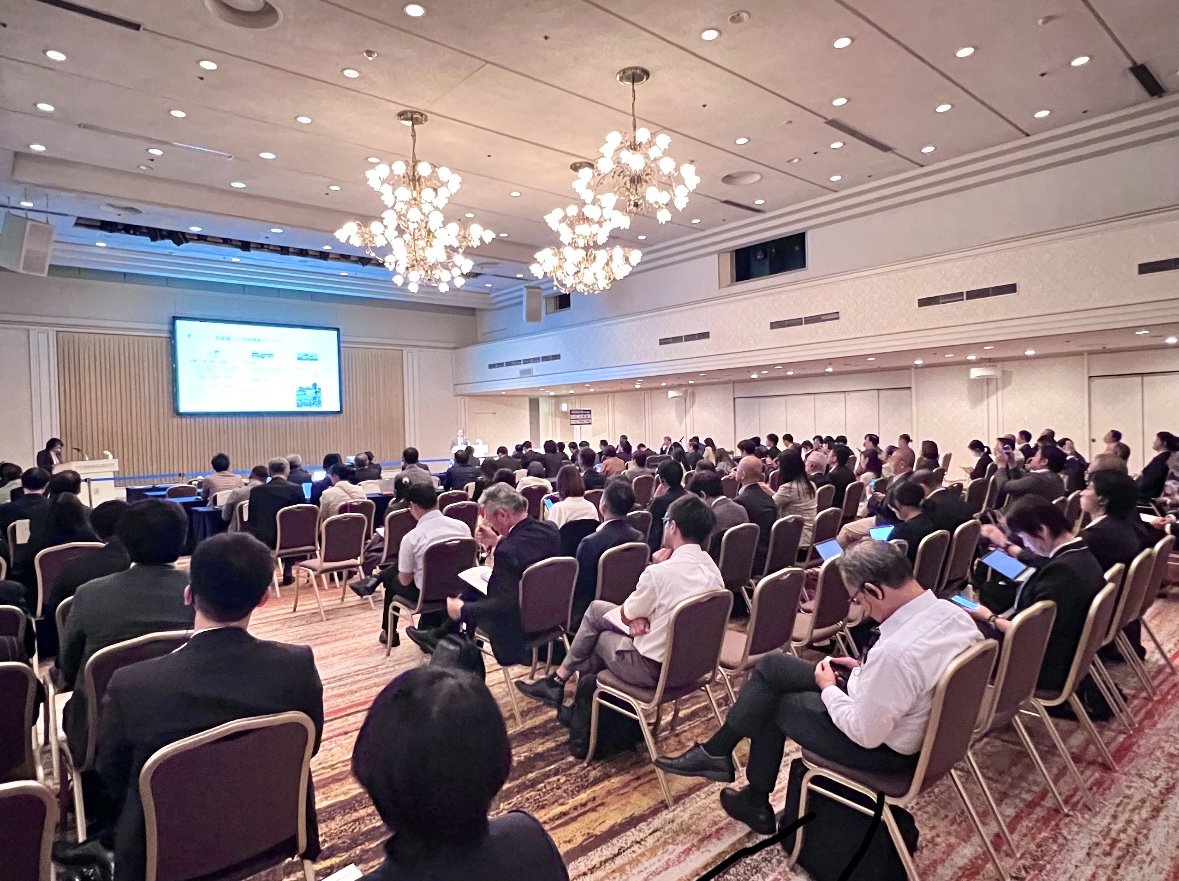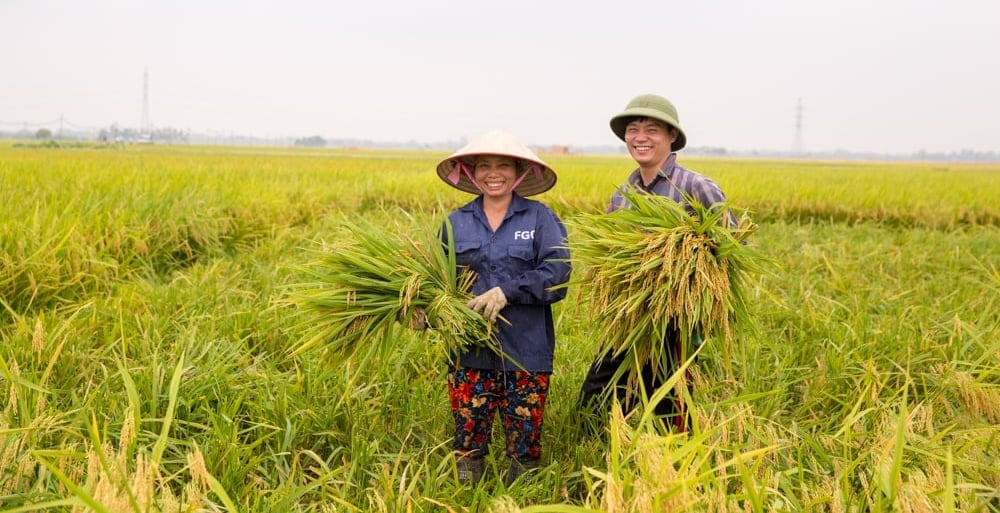December 17, 2025 | 07:29 GMT +7
December 17, 2025 | 07:29 GMT +7
Hotline: 0913.378.918
December 17, 2025 | 07:29 GMT +7
Hotline: 0913.378.918
Under the agreement, the parties will collaborate on field trials with rice crops to evaluate the nutrient absorption capacity and climate resilience of biostimulant products, biological formulations that promote plant growth, developed by AGRI SMILE.
By applying these biostimulants, scientists aim to establish green and sustainable farming practices that reduce greenhouse gas emissions, nurture the soil, and conserve natural resources and biodiversity. At the same time, the parties will prepare product registration dossiers and distribution plans for the Vietnamese market.

Mr. Tran Duc Thang, Acting Minister of Agriculture and Environment (second from left), and Mr. Koizumi Shinjiro, Minister of Agriculture, Forestry and Fisheries of Japan (third from left), witness the memorandum of understanding between PAN Group, AGRI SMILE, and the Mitsubishi Research Institute. Photo: PAN Group.
According to Ms. Nguyen Thi Tra My, CEO of PAN Group, both domestic and international markets are increasingly imposing stricter standards regarding food safety, chemical residues, and sustainable production practices. In this context, biostimulants represent a promising solution to help Vietnamese agricultural products comply with these rigorous requirements while also maintaining consistent productivity levels.
She explained, “Biostimulants are still a relatively new field in Vietnam, which opens up significant opportunities for international collaboration in areas such as technology transfer, field trials, and commercialization. Japan, in particular, stands out as a crucial strategic partner in this process."
“With the support of government policies promoting organic and biological agriculture, I strongly believe that biostimulants have the potential to become a prioritized product group for development, registration, and market expansion.
This green technology is expected to play a pivotal role in reducing reliance on chemical inputs, boosting crop yields, enhancing climate resilience, and meeting international standards. Ultimately, it will contribute to strengthening the global competitiveness of Vietnamese agriculture and ensure that our farming sector remains sustainable, innovative, and aligned with evolving market demands,” she added.

Overview of the Vietnam–Japan Public–Private Cooperation Forum on the afternoon of September 4. Photo: PAN Group.
Biostimulants are biological products applied to crops or soil to stimulate natural physiological processes, thereby enhancing nutrient uptake, increasing stress tolerance (to heat, drought, salinity intrusion, pests, and diseases), and improving both yield and quality of agricultural products.
Unlike traditional fertilizers, which provide nutrients directly, or pesticides, which control pests and diseases, biostimulants work by improving the overall health and resilience of plants. They are often derived from natural sources such as seaweed extracts, amino acids, beneficial microorganisms, humic/fulvic acids, or recycled by-products from agriculture and food processing.
These products help strengthen plant health, optimize nutrient efficiency, and support crops in coping with the growing challenges posed by climate change, including drought, salinity intrusion, and extreme heat. Key crops such as rice, maize, and vegetables can benefit significantly from the application of biostimulants, contributing to more sustainable and resilient agricultural production.

Biostimulant biological products help enhance plant health, improve nutrient use efficiency, and support crops in better coping with climate change. Photo: PAN Group.
“Japan is not only a key partner for many Vietnamese businesses but also a market that serves as a benchmark for product quality. Collaboration in Japan brings significant value to our Group, as 30% of our export revenue is generated from the Japanese market. This clearly demonstrates that only Vietnamese products meeting the highest quality standards can succeed in such a demanding and sophisticated market,” emphasized Ms. Tra My, CEO of PAN Group.
Currently, Japan is both a strategic market and the largest export destination for PAN Group. In 2024, the Group achieved consolidated revenue of VND 16,182 billion (~USD 650 million), with exports to Japan reaching nearly USD 100 million, accounting for 33% of the Group’s total export turnover. The main export products include shrimp, pangasius, seeds, dried fruits, confectionery, and flowers, reflecting the diversity and quality of Vietnamese agricultural products.
To meet the growing demand for rice in Japan, PAN is actively promoting the export of packaged branded rice. Vinaseed, a member company of PAN, has already established export channels to Europe, Australia, Russia, Mongolia, the UK, Canada, and other countries, making it one of Vietnam’s largest suppliers of branded rice. This expansion underscores PAN Group’s commitment to enhancing the global presence of high-quality Vietnamese agricultural products and strengthening long-term trade partnerships with demanding international markets such as Japan.
Translated by Phuong Linh

(VAN) Dien Bien is speeding up ODA projects to respond to climate change and strengthen water management and disaster prevention infrastructure in pursuit of sustainable development.

(VAN) With high automation, large capacity, and a green development orientation, the Hai Duong Plant Branch is becoming an important anchor for the animal feed market.
/2025/12/01/2936-2-222331_70.jpg)
(VAN) Mortgaging his house and giving up a pharmaceutical management career, Mr. Nguyen Quang Duy succeeded in bringing Khanh Hoa's sea grapes to demanding markets such as Japan and the U.S.

(VAN) The large-scale agroforestry investment project aims to develop a leading sustainable agro-industrial center in Angola.
/2025/11/28/3433-1-212821_213.jpg)
(VAN) Many localities across the coconut land of Vinh Long are replicating emission-reducing models in production and daily life, contributing to the targets for emission reduction and green economic development.

(VAN) The green transition is an inevitable path for collective economy to achieve balanced growth and align with global trends.

(VAN) The TH Group is not only Vietnam’s leading clean-milk producer; it is also leaving a strong mark on sustainable development as it pursues the goal of carbon neutrality.